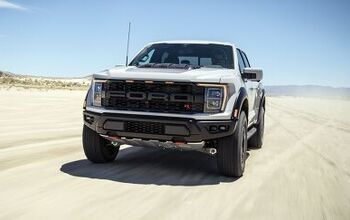These Are the Most Reliable Cars in Each Category, Says J.D. Power
Recent findings from J.D. Power show that after three years of ownership, vehicle dependability has diminished. Owners are reporting more problems compared to the previous year, with the industry average escalating to 190 problems per 100 vehicles (PP100). The disparity in problem rates between the initial 90 days and three years of ownership has surged, indicating a notable decrease in vehicle dependability over time.
Electrified Vehicles: A Mixed Bag
Owners of BEVs and PHEVs report more problems than those with gasoline and hybrid vehicles, with tire replacement being a notable issue for BEV owners.
Segment-by-Segment Breakdown
The study lists the most reliable vehicles across different categories, with Toyota Motor Corporation achieving the most segment awards. Here is an organized summary of the top-ranking models:
Compact and Midsize Cars:
Compact Cars:
- Toyota Corolla
- Honda Civic
- Toyota Prius
Compact Premium Cars:
- Lexus IS
- BMW 4 Series
- BMW 3 Series
Midsize Cars:
- Toyota Camry
- Chevrolet Malibu
- Hyundai Sonata
Midsize Premium Cars:
- Lexus ES
Premium Sporty Cars:
- Porsche 718
- Chevrolet Corvette
Pickup and Van Segments:
Large Heavy Duty Pickups:
- Ford Super Duty
- GMC Sierra HD
- Chevrolet Silverado HD
Large Light Duty Pickups:
- Toyota Tundra
- GMC Sierra
- Chevrolet Silverado
Midsize Pickups:
- Toyota Tacoma
- Chevrolet Colorado
- Ford Ranger
Minivans:
- Kia Sedona
- Toyota Sienna
- Honda Odyssey
Standout Brands
Lexus is recognized as the most reliable brand overall, followed by Porsche and BMW for premium brands. In the mass market, Toyota ranks highest with Buick and Chevrolet in a close contest for reliability.
Methodology of the Study
The study reflects the experiences of over 30,000 owners of 2021 model-year vehicles after three years. It encompasses 184 problem areas across nine vehicle categories to provide a detailed analysis of long-term vehicle reliability.
This article was co-written using AI and was then heavily edited and optimized by our editorial team.
More by TTAC Staff
Latest Car Reviews
Read moreLatest Product Reviews
Read moreRecent Comments
- ToolGuy Possibly interesting trivia: Mopar part #4589645AA is manufactured by Stabilus, but is marked up 125% over Stabilus part #5B244502.(A *lot* of the parts on your vehicle aren't made by the OEM.)
- 1995 SC Car makers say all sorts of stuff. Arent most of them not named Toyota already supposed to be like half EV based on things they said a few years ago? Yet here we are
- ToolGuy "what is the appropriate strategy for automakers to pursue going forward?"• Twin-turbocharged straight-six engine of 2,993cc displacement, obviously.
- Matt Posky EVs are fine. People can buy them. Companies should build them. But the regulations and products have to be sound. The issue is that they aren't -- whether we are talking about all-electric vehicles or combustion ones.
- MaintenanceCosts The fact is that if you are in product planning for a worldwide automaker the Chinese market comes first, the European market second, and our market after that.That means you have to have a lineup of EVs in at least the segments that sell in China and Europe. That means small to medium CUVs, city cars, and maybe a couple of global-size SUVs and pickups. If you have development dollars left over after serving your biggest markets, maybe you can put them into North America-specific products like large CUVs and full-size pickups. At least for the next 10 years you will need an ICE hybrid powertrain to go with those products.Non-hybrid ICE is a dead end for all but the tiniest niche of sports cars.


































Comments
Join the conversation